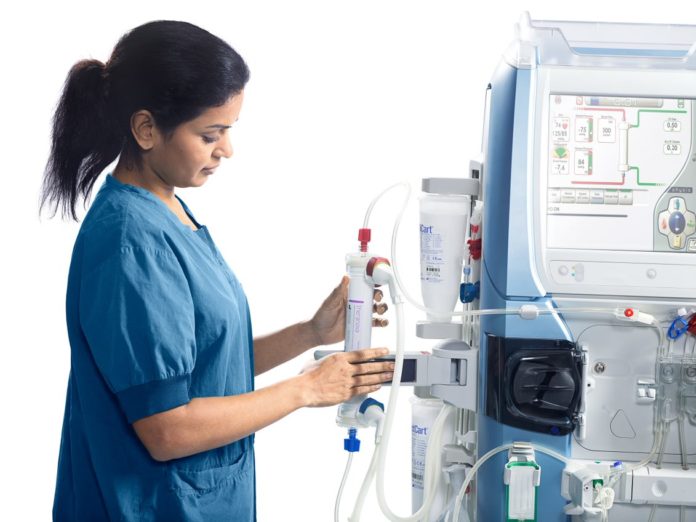By Celine Zadorsky
Finding out he had chronic kidney disease came as a surprise to 80-year-old Robert Wahby. “I didn’t feel or have any symptoms so it was kind of a shock, especially when it got to the point that I needed dialysis.”
Wahby, who is a retired family doctors, had been undergoing dialysis at London Health Sciences Centre (LHSC) for close to five years when he decided to take part in a clinical trial through Lawson Health Research Institute, the research arm of LHSC and St. Joseph’s Health Care London. The study was testing an expanded type of dialysis.
“I was hoping that using this different dialyzer would reduce some of my symptoms from dialysis. My appetite was down, I was steadily losing weight and I was hoping it would also help me sleep better,” shares Wahby, who was one of 28 study participants.
Expanded is a new method that removes a broader range of toxins from the body which can improve the quality of life in chronic kidney disease patients who struggle with the side effects from traditional dialysis.
The research was led by Dr. Chris McIntyre, Nephrologist at LHSC and Scientist at Lawson, and examined a new form of dialyzer called THERANOVA, made by Baxter International Inc. THERANOVA has precisely-made pores that allow larger sized toxic chemicals to be filtered from the blood while retaining essential molecules such as albumin. “The chemicals that can now be filtered out can cause inflammation, malnutrition and the buildup of waste,” explains Dr. McIntyre. “With traditional dialysis treatments, we haven’t been as successful at removing those chemicals and some patients experienced significant side effects.”
These larger molecules that the THERANOVA dialyzer is able to filter out are believed to be associated with inflammation, cardiovascular disease and chronic symptoms like fatigue.
Along with receiving the expanded dialysis treatment, the research participants were monitored through the London Evaluation of Illness (LEVIL) app, developed by Dr. McIntyre with the help of patient input.
“One of our big research challenges is measuring the quality of life on dialysis,” says Dr. McIntyre. “Conventional measures take time and may not be as accurate, so by asking questions through the app every day we were able to get a true idea of how patients were feeling.”
By using the LEVIL app, the team was able to determine that patients that had a poorer quality of life at the start of the study significantly improved in the areas of general wellbeing, energy and sleep after approximately four to eight weeks of expanded dialysis.
“It’s been incredible. People have been able to walk their dogs again. They have been able to play with their grandchildren when they didn’t have the energy before to do that,” adds Dr. McIntyre.
Wahby, who completed the clinical trial but still receives dialysis through THERANOVA, has been happy with the results he’s noticed so far. “I felt better, I was eating more and I had a better’s night sleep.”
His wife Marlene Wahby, has also noticed promising changes. “His sleeping patterns have gotten better and he feels better when he comes home. When he was on the traditional dialysis, he got very jumpy and didn’t feel well at all when he would come home from treatments.”
Now that the first phase of this study has been completed and published in Kidney Medicine, the next phase will include 60 dialysis patients for up to six months of treatments using the THERANOVA dialyzer. This second phase will be a multicentered clinical study led by Lawson, University of Toronto and Humber College.
Celine Zadorsky works in Communications Consultant & External Relations at Lawson Health Research Institute.




